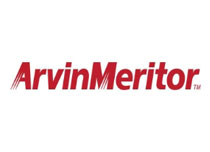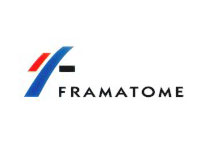You Can’t Herd Cats, But They Will Hunt Together

Cascade Canyon Grand Teton National Park Wyoming
Over the weekend I got back from Vienna, where I attended the 5th Annual Peter Drucker Global Forum, the theme of which was “Managing Complexity”. Last year I attended my first of these extraordinary conferences on the strength of my prize-winning essay, which I had entered for the Peter Drucker Global Essay Challenge. This year I returned and a few weeks before the session was asked to be a panelist on the topic of “”.
I must confess that my heart had sunk a little when I saw the words “project management”. Almost everything I have read about the topic over the years has depicted a process that seemed to flow like a Cartesian cascade in a hard-rock canyon. All the thinking appeared to be done by the folk at the top and all the work was done by those at the bottom, where their behaviour was constrained by a straightjacket of action plans and deadlines imposed from above. This impression had been matched by my experience in the companies I had worked for, where I came to think of “project management” as a tool for corporate oppression. “Stretch goals” were handed down from on high with arbitrary deadlines from which there was no appeal. “Administrative practices” were applied to get them done. Deviations from those action plans were likely to show up in one’s performance review. “Make it happen” was the corporate mantra.
Cats Will Hunt Together
We had discussed such issues in our pre-panel conference call and had agreed to go in and improvise round some themes. Johan Roos, our moderator, ran a brilliant process; he began by outlining his own experience as the dean of a business school and likened the management of academics to “herding cats”. Terry Cooke-Davies, the designated speaker, gave an excellent framing presentation, saying that he wanted to talk about projects and not project “management”. Then the process really got underway with project expert Philip Diab and I responding to Terry’s remarks, Johan asked the participants to discuss certain topics and all of us responded to their questions and comments.

Lionesses hunting together: attention and coordination without central control
I began my comments with my corporate experiences and then told the participants of what happened when we were taken over in a leveraged buy-out (LBO) that went spectacularly wrong. We owed the bank so much money that it was their problem too, not just ours, and we found ourselves in a morass of complex issues. We formed a score of project teams, gave them all the information we could, and sent them off to find out “what the **** was going on”. We gave them a deadline to report back to us on what was happening, but made it clear that we trusted them to give us a speedy assessment and clear recommendations on what the corporation should do. In that process we found that projects could be a vehicle for personal growth and liberation. “You can’t herd cats” I said to the meeting, “but they will hunt together.” The key to effective projects is learning how to create the appropriate “hunting” contexts and then to “Let it happen.”
The essential difference between hunting and herding behavior is that the former is a “pull” dynamic, depending on trust and attraction, while the latter is a “push” model that relies on structural power and compulsion. The problem is that effective hunting dynamics require development over time to produce the virtuous habits and values that are critical to coordination without central control. There is no doubt that the hunting dynamic is much more effective in situations requiring exploration and learning, but it is difficult to scale. Herding behavior, on the other hand, can be quickly imposed top-down and is easily scaled; unfortunately it only works in situations requiring exploitation and repetition and, even then, not very well. The result is a tension between learning and performance that has to be addressed continually in large successful enterprises. Of particular relevance to this topic were John Hagel’s remarks in his plenary talk at the conference on the present need for “scalable learning” in organizations, as opposed to the “scalable efficiency” of the past.
After an hour and a quarter the panel ended with a group “huddle” as we came down off the speaking platform and interacted with the participants on the ground. Many of them said to me that it was one of the best panels of the conference and how much they had enjoyed the process. Over the next few weeks I will blog further on the conference and the other topics raised in the panel discussions.
This entry was posted in Change, General, Leadership, Strategy and tagged administrative practices, Cartesian cascade, complex systems, global forum, herding, herding cats, hunter-gatherer, hunting, hunting dynamics, Johan Roos, John Hagel, let it happen, make it happen, Peter Drucker, Philip Diab, project management, pull, push, stretch goals, Terry Cooke-Davies. Bookmark the permalink. ← European Union: If You Have Them By Their Wallets, Will Their Hearts and Minds Follow? The Map and The Territory: Complexity as Challenge and Opportunity →-
Archives
- May 2024
- February 2023
- December 2022
- September 2022
- May 2022
- March 2022
- February 2022
- November 2021
- October 2021
- January 2021
- November 2020
- September 2020
- July 2020
- June 2020
- May 2020
- April 2020
- February 2020
- January 2020
- September 2019
- July 2019
- April 2019
- March 2019
- November 2018
- October 2018
- March 2018
- July 2017
- April 2017
- November 2016
- October 2016
- June 2016
- May 2016
- April 2016
- March 2016
- December 2015
- November 2015
- October 2015
- May 2015
- March 2015
- January 2015
- December 2014
- November 2014
- September 2014
- July 2014
- June 2014
- May 2014
- April 2014
- March 2014
- February 2014
- January 2014
- December 2013
- November 2013
- October 2013
- September 2013
- August 2013
- July 2013
- June 2013
- May 2013
- April 2013
- March 2013
- February 2013
- January 2013
- December 2012
- November 2012
- October 2012
- September 2012
- August 2012
- July 2012
- June 2012
- May 2012
- April 2012
- March 2012
- February 2012
-
Meta
















Comments are closed.